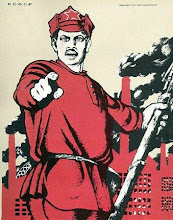The trouble with Banks is that the financial system is a house of cards.......
However, the Banking System has always been a house of cards.
In its very conception, it is prey to runs and panic and instability. Banks have requirements only to keep a certain percentage of their capital commitments, and at any time - if a sufficient number of people made demands - there could be problems which might spiral into panics. It required men and women of character, judgment, and discretion; men and women conservative, honest, and trustworthy to overcome this inherent potential for instability within the banking system.
It is the character of the people involved that work as the flying buttresses that render the great Gothic vaults stable by deflecting and redirecting the forces that would cause ruin.
Think of the biggest banks of today and their leaders. What does "robo-signing" of foreclosure documents look like? Honesty? Good judgment? Character?
Think of Jimmy Stewart as George Bailey stemming the tide of the run on the Bailey Savings & Loan in Bedford Falls; he uses the money saved for his honeymoon to restore the confidence of his customers.
Now imagine the CEOs of today speaking to us about their failures. Would they increase our sense of Trust? Would their manifest honesty quell our fears?
--
Saturday, November 06, 2010
Subscribe to:
Post Comments (Atom)

















6 comments:
It would have to be a hallucination, wouldn't it? Perhaps only possible to be brought on by psychotropic drugs.
We really don't have any good stories anymore. George Bailey's dead and were left with Jamie Dimon and the crowd.
Montag, have you seen this series about the divergence in income in the U.S. since the 1970s?
http://www.slate.com/id/2266025/entry/2266026
I'll look at it. Thank you.
I have been aware that real wages have been pretty much stagnant since the 1980's.
In fact, the decline in the rise of wages parallels that decline of the Federal Reserve Rate after the Carter Administration (1980). I interpreted this as the end of the "World War II" effect. The enormous boost that came at the end of WW II came to an end, inflation was never to be again ( as yet ) as big a problem and the government had to concentrate more on stimulating the economy, rather than keeping it from overheating.
In short, I personally do not think there is an answer to the present predicament, short of waiting it out.
Spending without a large war of short duration from which we emerge absolutely victorious and manufacturer to the world is unlikely to happen soon.
I think real wages may have been stagnant even longer, but that depends on which set of economic stats you're looking at. But you're right on when you say there's no way out of our present predicament. What's really scary is that nobody, even the so-called experts, know what to do. Our economy, the world's economy, are in uncharted waters.
I am not sanguine that the waiting it out will be kindly for the vast majority of us.
No, it won't be kindly. We are going where we have not gone before.
Post a Comment